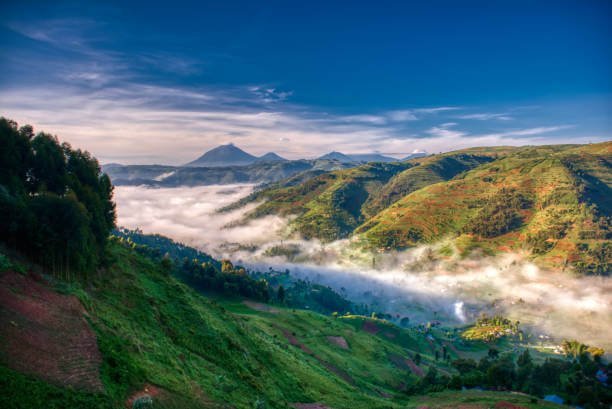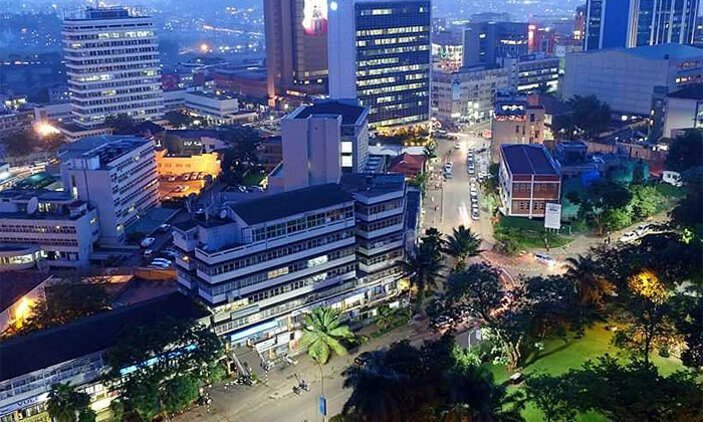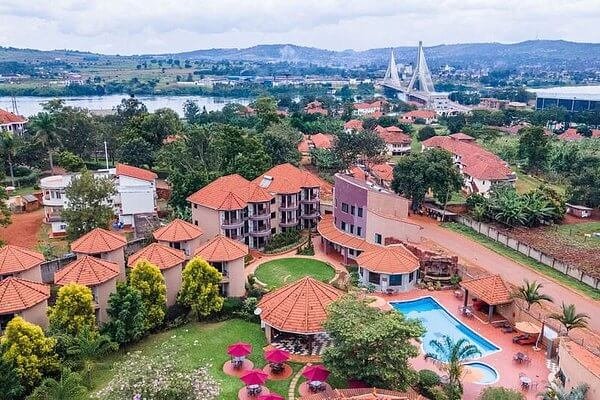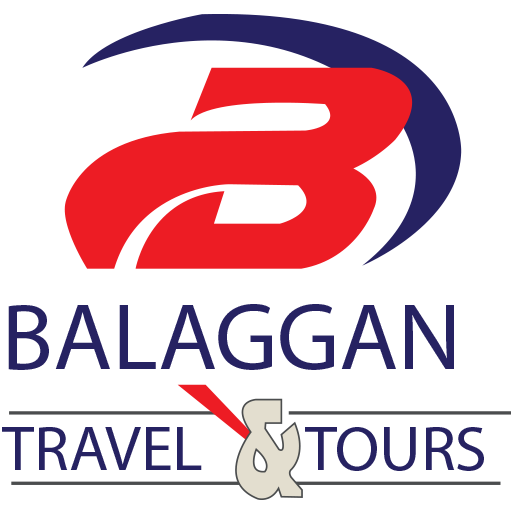With an array of landscapes, outstanding wildlife watching and hospitable locals, Uganda packs a lot into one trifling country. Its home to Africa’s highest mountain range (the Rwenzoris), the foundation of the Nile, the world’s lengthiest river and the continent’s largest lake. Rafting the Nile offers a world-class adrenaline quest, but the country’s most iconic practice is tracking mountain gorillas in their misty habitat. And if you view the Big Five, you’ll see that nature – sundry and magnificent – looms large here.

Personal appearance Not Necessary. | Visas Approval is subjected to Immigration. | We are not responsible in case of Visa is rejected / Delayed. | Visa fee is Non Refundable in any case. | Embassy Have the right to demand extra documents. | All payments made to be in advance.
Requirements
Original Passport with 6-month Validity must be signature of passport holder
01 Picture in White/Blue Background 2×2 inches??Copy of CNIC both side cleared
Family Registration Certificate “FRC” or Marriage Registration Certificate “MRC”
Vaccination Certificate (Yellow Fever).
Processing Time Approx.: 02 weeks
Tour Guide Cities
As of my knowledge cutoff in September 2021, some of the top cities in Uganda are:
Kampala
Kampala is the capital and largest city of Uganda. Located in the central part of the country, it is a vibrant and bustling metropolis. Kampala serves as the economic, political, and cultural center of Uganda, hosting various government institutions, businesses, and cultural attractions.
The city offers a unique blend of modern infrastructure and traditional influences. Kampala’s cityscape is characterized by a mix of high-rise buildings, colonial-era architecture, and bustling markets. The central business district is filled with offices, financial institutions, and shopping centers, reflecting the city’s status as a commercial hub.
Kampala is known for its lively markets, where visitors can immerse themselves in the vibrant atmosphere and experience the local culture. Popular markets include Owino Market, Nakasero Market, and the Crafts Village, where one can find a wide range of goods such as textiles, crafts, fresh produce, and traditional attire.
The city is also home to various cultural and historical attractions. The Uganda Museum showcases the country’s rich history, traditional artifacts, and cultural heritage. The Kasubi Tombs, a UNESCO World Heritage site, is the burial ground of four Kabakas (kings) of Buganda and offers insights into Buganda kingdom traditions and customs.
Kampala’s vibrant atmosphere, cultural diversity, and range of attractions make it a fascinating destination for both business and leisure travelers. The city showcases the unique blend of Uganda’s traditional heritage and its progressive urban character.

Mbale
Mbale is a city located in eastern Uganda, nestled at the foothills of Mount Elgon. It serves as the administrative and commercial center of the Mbale District and is known for its scenic beauty, cultural heritage, and outdoor activities.
One of the highlights of Mbale is its proximity to Mount Elgon, an extinct volcano that straddles the Uganda-Kenya border. The mountain offers opportunities for hiking, trekking, and exploring its natural wonders. Visitors can embark on expeditions to discover stunning waterfalls, hot springs, caves, and diverse flora and fauna in the Mount Elgon National Park.
Mbale is also renowned for its vibrant markets. The central market, called “Gishu Market,” is a bustling hub where locals gather to buy and sell a wide range of products, including fresh produce, crafts, and traditional attire. Exploring the market provides a glimpse into the local culture and daily life of Mbale residents.
The city is home to various cultural and historical landmarks. The Wanale Ridge, located just outside Mbale, offers panoramic views of the city and its surrounding landscapes. The historic Nyero Rock Paintings, dating back thousands of years, depict the early artistic expressions of the region’s inhabitants.
Mbale is part of the Bugisu sub-region, inhabited primarily by the Bagisu people. Visitors have the opportunity to witness and engage with Bagisu cultural practices and traditions, including the male circumcision ceremony known as “Imbalu.” This cultural event is celebrated every two years and attracts visitors from around the world.
Mbale’s natural beauty, cultural richness, and adventurous offerings make it an attractive destination for nature enthusiasts, cultural explorers, and those seeking an off-the-beaten-path experience in Uganda.

Jinja
Jinja is a city in Uganda located in the southeastern part of the country. It is situated on the northern shores of Lake Victoria, where the Nile River begins its journey towards Egypt. Jinja is known as the “Source of the Nile” and is a popular tourist destination with a range of attractions and activities.
One of the main draws of Jinja is its association with the Nile River. Visitors can witness the spot where the Nile flows out of Lake Victoria, an area known as the “Source of the Nile.” This iconic location attracts tourists from around the world who come to marvel at the natural wonder and enjoy the picturesque views.
Jinja is renowned for its adventure tourism opportunities, particularly water-based activities on the Nile. White-water rafting is a popular adrenaline-inducing activity, with various levels of rapids available for both beginners and experienced rafters. Kayaking, jet boating, and fishing are also popular water-based activities in Jinja.
The city is home to the Owen Falls Dam, which was constructed to harness the power of the Nile River and generate hydroelectricity. Visitors can learn about the dam’s history, its impact on the region, and witness the impressive structure.
Jinja offers a range of cultural and historical attractions as well. The Jinja Central Market is a bustling hub where locals sell a wide array of goods, including fresh produce, crafts, and textiles. The market provides an opportunity to experience the vibrant local culture and interact with the friendly residents.
The town has a rich history related to its role as an industrial center during the colonial era. The Jinja Railway Station, built in the early 20th century, stands as a testament to that era and serves as a reminder of Uganda’s railway heritage.
For nature lovers, Jinja is surrounded by beautiful landscapes. Nearby attractions include the Mabira Forest, a tropical rainforest with diverse flora and fauna, and the Bujagali Falls, a scenic waterfall on the Nile River.

Jinja offers a range of accommodations, from budget guesthouses to upscale resorts, catering to different traveler preferences. The city also has a variety of restaurants, cafes, and bars where visitors can sample local and international cuisine.
With its stunning natural beauty, thrilling adventure activities, and cultural charm, Jinja has become a must-visit destination in Uganda. It attracts adventure seekers, nature enthusiasts, and those looking to experience the historical and cultural aspects of the region.
